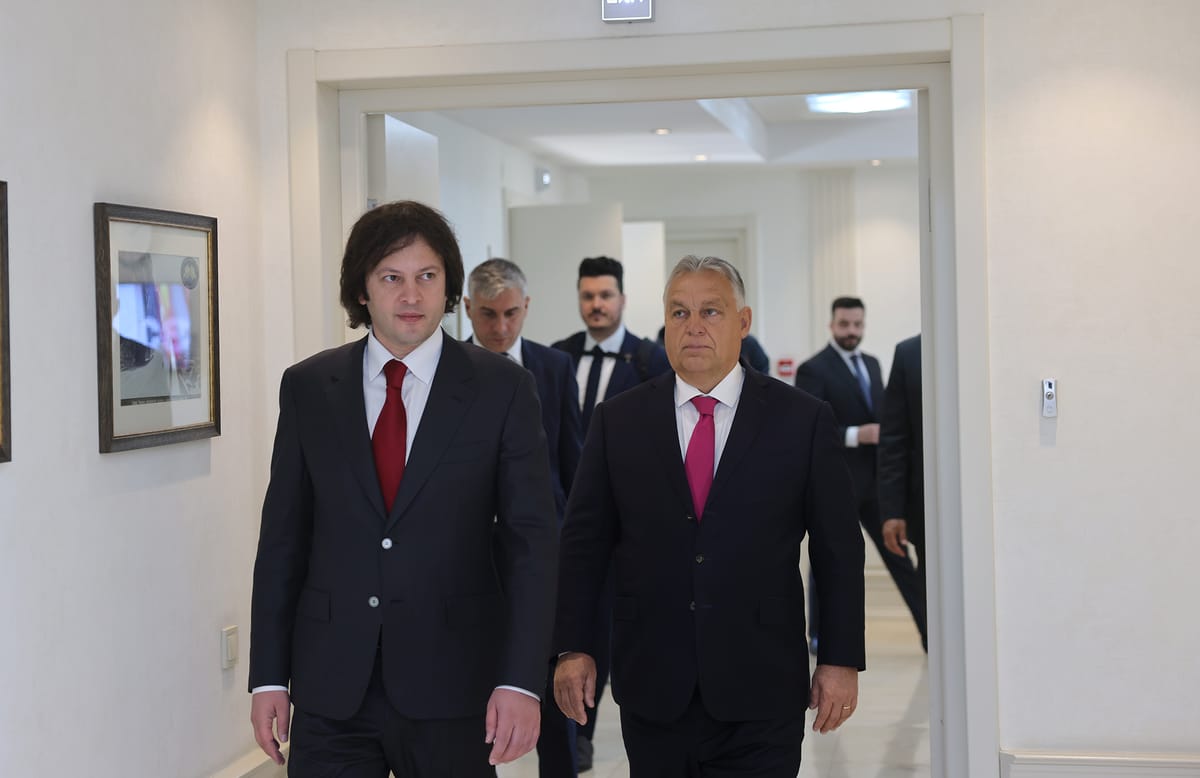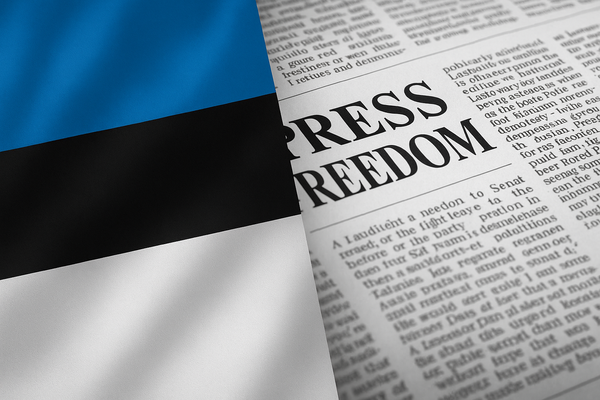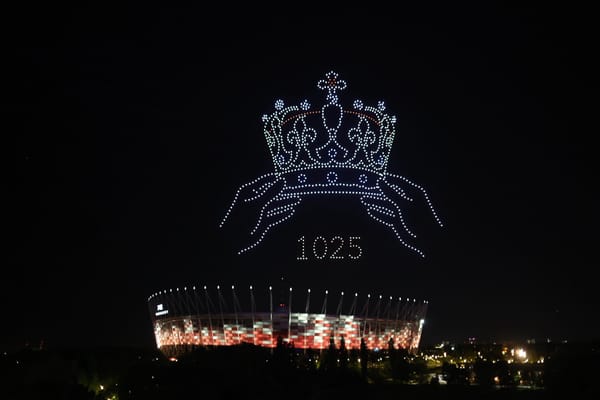
CEE countries take sides in aftermath of Georgia's disputed election
In the wake of the parliamentary elections in Georgia held on 26 October 2024, international reactions ranged from congratulations to expressions of concern over the integrity of the electoral process.
Doubts over the legitimacy of last weekend’s vote have placed the country at the centre of a geopolitical tug-of-war, as evidence of alleged electoral manipulation abounded.
Orban visits Tbilisi in election aftermath
Hungarian Prime Minister Viktor Orban reprised the “unconventional diplomacy” of the first weeks of Hungary’s rotating EU presidency by visiting Georgia, having already congratulated Georgian Prime Minister Irakli Kobakhidze and his ruling populist, pro-Russian Georgian Dream party, for its “overwhelming victory” before the election results were even announced.
Orban, who like Georgian Dream campaigns on tradition, religion, and anti-Western sentiment, hailed the outcome as a triumph for “traditional values” and a stand against “Western liberalism”.
Kobakhidze wrote on Facebook: “I met the Chairman of the Council of the European Union, Hungarian Prime Minister Viktor Orban. At the face-to-face meeting, we discussed bilateral relations between Georgia and Hungary and issues of cooperation in different fields.
“The importance of Prime Minister Orban’s visit was emphasized during the period of the presidency of the European Union Council of Hungary. It was noted that this confirms Hungary’s support for Georgia’s priorities,” Kobakhidze added.
Baltic countries express concern over result
The following day the foreign ministries of Latvia and Lithuania issued separate statements questioning whether the electoral process had been free and fair.
The Latvian Foreign Ministry expressed “serious concerns” about the findings of international and local observers on the Georgian elections. The letter said “Latvia calls on the Georgian authorities to take action immediately in order to investigate into the violations identified and ensure the confidence of the local and international community in the electoral process and the protection of citizens’ fundamental rights.
The Lithuanian Foreign Ministry meanwhile highlighted an “unprecedented number of incidents and systemic violations, both throughout the electoral campaign and during the voting day,” and the “mass scale attacks against the political opponents of the ruling party” as well as a “systemic use of disinformation in the electoral campaign”.
“These violations have been registered by many international and local independent observers,” the Lithuanian ministry wrote, noting that the liberal, centrist, pro-EU Gerogian President Salome Zourabichvili “has refused to accept the result”.
Allegations of voter manipulation, electoral fraud abound
Evidence of electoral interference casts doubt on Georgian Dream’s rural strongholds, where the party reportedly secured 70-80% of the vote. Observers noted a distinct pattern of voting irregularities, with unusually high support for Georgian Dream in regions where government control is more direct, raising parallels to authoritarian regimes such as Russia. Instances of vote-buying, intimidation, and ID confiscation prior to election day were documented, especially in rural areas reliant on state aid.
Reports from Edison Research and Europe Elects pointed to discrepancies between exit polls, which predicted strong support for opposition coalitions, and the final tally, suggesting potential manipulation.
International election observers expressed concern about vote-buying and coercion of public sector employees to favour Georgian Dream, noting the absence of secrecy in ballot casting and documented cases of ballot stuffing.
Georgia’s opposition parties and civil society groups have mounted a coordinated campaign to challenge the results. The head of state also refused to recognise the outcome. In Georgia’s capital Tbilisi, tens of thousands rallied in protest what they consider systemic election fraud, calling for Western support.
Opposition Freedom Square party member Davit Jintcharadze wrote in UK daily The Guardian that “all four major pro-European parties, including my own, have rejected the election results in Georgia.
“Georgia’s electoral commission claims that there are 1.1mn Georgian Dream voters in the country, yet it has not had more than 800,000 supporters since 2020. According to the official results, the government gained 300,000 votes, while the opposition gained only 1,000 more than in the previous elections – numbers too suspicious to be true, especially considering the reports of double-voting.”
France, Germany, US reject election result
While China praised the “smooth” conduct of the election, Western officials called for investigations into reported irregularities. The EU reacted with a joint statement from the European Commission and its outgoing top diplomat Josep Borrell underscoring the need for a “swift, transparent, and independent” investigation into allegations of electoral irregularities.
Borrell said Georgia, as an EU candidate country, must demonstrate its commitment to European values, starting with fully transparent election processes. “Integrity of elections and upholding the rule of law are cornerstones of democracy and an integral part and fundamentals of the EU accession path,” Borrell said.
French and German officials mirrored these sentiments, as Germany urged the EU to withhold recognition of the results. US Secretary of State Antony Blinken highlighted irregularities and called for thorough scrutiny, while US President Joe Biden urged the Georgian government to address these violations transparently.





